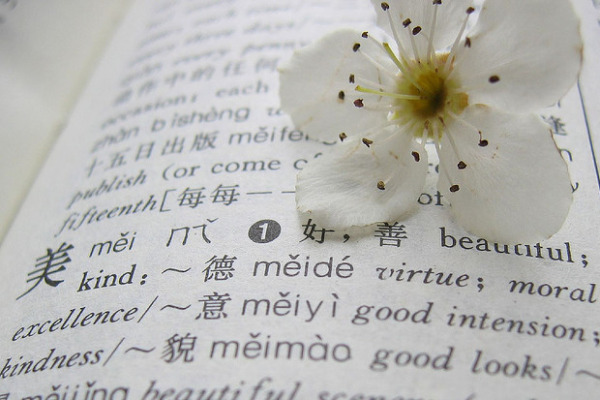how to say “can i buy you a drink” in 50 languages
By Mara via Tripbaseblog
Just one simple line in the local language can be enough to break the ice and make a connection. And though the language of love is universal, it helps to have a smooth move to use on that special someone you’ve spotted across the bar.
Whether you’re enjoying sake in Tokyo, caipirinha in Rio, ouzo in Athens or pilsner in Prague, we’ve got you covered for your opening line.
Read on for 50 different ways to ask, “Can I Buy You a Drink?”
1) Albanian
Mund të blej ju një pije?
2) Armenian
Կարող եմ գնել Ձեզ խմելու բան հյուրասիրեմ (Karogh yem gnel Dzez khmelu ban hyurasirem)
3) Azerbaijani
Sizə bir içki almaq olar?
4) Bengali
আপনার জন্য একটা ড্রিংক কিনতে পারি? (Āpanāra jan’ya ēkaṭā ḍriṅka kinatē pāri?)
5) Bulgarian
Мога ли да купя едно питие? (Moga li da kupya edno pitie ?)
6) Catalan
Puc convidar a una copa?
7) Chinese
我可以购买你喝一杯吗?(Wǒ kěyǐ gòumǎi nǐ hè yībēi ma?)
8) Croatian
Mogu li kupiti piće?
9) Czech
Můžu vám koupit nápoj?
10) Danish
Kan jeg købe dig en drik?
11) Dutch
Kan ik je iets te drinken aanbieden?
12) Estonian
Kas ma saan osta midagi juua?
13) Filipino
Maaari ba akong bumili ng maiinom?
14) Finnish
Voinko ostaa sinulle drinkin?
15) French
Puis-je vous offrir un verre?
16) Georgian
შემიძლია თუ არა ყიდვა თქვენსასმელს? (shemidzlia t’u ara qidva t’k’ven sasmels ?)
17) German
Kann ich dir einen Getränk anbieten?
18) Greek
Μπορώ να σε κεράσω έναποτό? (Boro na se keráso éna potó ?)
19) Gujarati
હું તમને પીણું ખરીદી? (Huṁ tamanē pīṇuṁ kharīdī?)
20) Haitian Creole
Èske mwen ka achte ou bwè?
21) Hebrew
אני יכול לקנות לך משקה (Ani yechol liknot lach mishkeh?)
22) Hindi
क्या मैं कर सकता हूँ तुम एक पेय खरीदने? (Kyā maiṁ kara sakatā hūm tuma ēka pēya kharīdanē?)
23) Hungarian
Tudok egy italra?
24) Icelandic
Get ég keypt þér drykk?
25) Indonesian
Dapatkah saya membeliminum?
You’ve got “the look” now it’s time to pull your one line in Japanese out the bag. Photo by gullevek
26) Irish
An féidir liom a cheannaíonn túdeoch?
27) Italian
Posso offrirti da bere?
28) Japanese
私はお酒を購入できますか?(Watashi wa o sake o kōnyū dekimasu ka?)
29) Korean
내가 술 한 잔 사도 될까요? (naega sul han jan sado doelkkayo?)
30) Latvian
Vai es varu nopirkt jums dzert?
31) Lithuanian
Ar aš nupirksiu tau gėrimą?
32) Macedonian
Може ли да се купи пијалок? (Može li da se kupi piJalok ?)
33) Malay
Bolehkah saya belikan minuman?
34) Norwegian
Kan jeg kjøpe en drikke til deg?
35) Polish
Czy mogę kupić ci drinka?
36) Portuguese
Posso te pagar uma bebida?
37) Romanian
Pot să cumpăr ceva de băut?
38) Russian
Могу ли я купить тебевыпить? (Mogu li ya kupitʹ tebevypitʹ?)
39) Serbian
Могу купити ти пиће? (Mogu kupiti tipiće?)
40) Slovenian
Ti lahko kupim pijačo?
41) Spanish
¿Puedo invitarte a una copa?
42) Swahili
Naweza kununua kunywa?
43) Swedish
Kan jag bjuda på en dryck?
44) Tamil
நான் உனக்கு ஒரு பானம்வாங்க முடியுமா? (Nāṉ uṉakku oru pāṉam vāṅka muṭiyumā?)
45) Telugu
నేను మీకు ఒక పానీయం కొనుగోలుచేయవచ్చు? (Nēnu mīku oka pānīyaṁ konugōlu cēyavaccu?)
46) Thai
ฉันสามารถซื้อเครื่องดื่มให้คุณ? (Chạn sāmārth sụ̄̂x kherụ̄̀xng dụ̄̀m hı̂ khuṇ?)
47) Turkish
Ben size bir içki ısmarlayabilirmiyim?
48) Ukrainian
Чи можу я купити тобі випити? (Chy mozhu ya kupyty tobi vypyty ?)
49) Vietnamese
Tôi có thể mua cho bạn một thức uống?
50) Welsh
Alla i brynu diod chi?

 Follow
Follow

 Photo:
Photo: 



